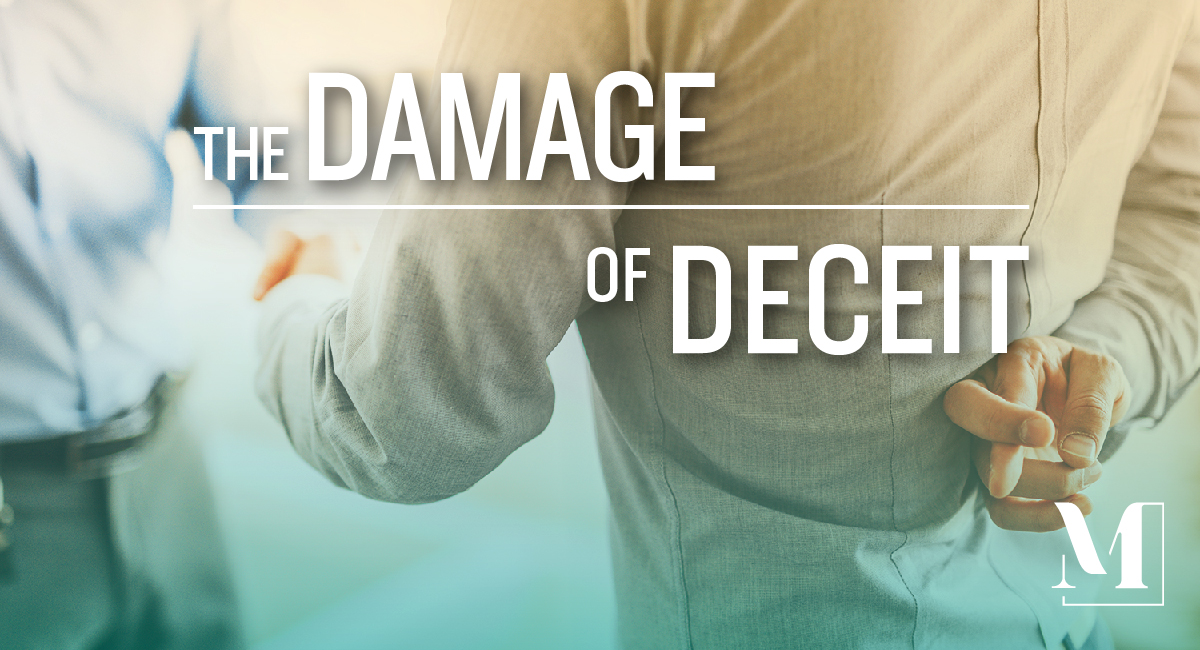Crisis situations arise when businesses, organizations or influencers are affected negatively by issues or events that were outside of their control or, in some instances, when companies’ and groups’ actions mistakenly caused and/or contributed to a crisis. Either way, the potential impact to a brand can be severe, destroying shareholder value, impacting the top line, creating distrust and eliminating jobs.
Then there is the type of crisis resulting from a company’s or individual’s intent to deceive or do harm. Managing communications around this type of issue is particularly challenging.
ADMIT IT, OWN IT, DO THE RIGHT THING
In these situations, among the most critical first steps is owning responsibility. Regardless of whether it is before, during or after such intent has been proven, taking ownership of the deception or misdeed allows a company or individual to begin the process of rebuilding trust with its various audiences. That healing process can take time, and it requires a commitment to transparency and doing the right thing. With the proliferation of social media and instant access to information, privacy no longer is a luxury that anyone can afford.
If your organization has erred with intent, accept the blame, own the responsibility and resolve the issue as quickly and responsibly as possible.
A REAL-TIME CASE STUDY
In recent weeks, much has been written about the ways in which, for years, Volkswagen deceived the Environmental Protection Agency (EPA) and the public. Not only did the company understate the levels of carbon-dioxide emissions in its cars, but it did so with thoughtful intent – by designing and installing a “defeat device,” or software installed in diesel engines that could detect when they were being tested, changing the vehicle’s performance and improving results dramatically. Not only has this deception – or perception of the fraud – spread from diesel to gasoline-powered cars, but to Volkswagen-owned brands such as Porsche. According to the EPA’s findings, more than 482,000 cars are affected in the U.S. alone, including the VW-manufactured Audi A3, and the VW models Jetta, Beetle, Golf and Passat. VW has admitted that approximately 11 million cars worldwide, including eight million in Europe, are fitted with the so-called “defeat device.”
Upon being “caught” by the EPA, Volkswagen spokespeople admitted that the company “totally screwed up” and had “broken the trust of [its] customers and the public.” Several people in leadership positions have been fired, an internal inquiry has launched and millions of cars worldwide are, or soon will be, recalled. As a result, the company posted its first quarterly loss in 15 years of €2.5 billion in late October 2015. More fallout is to come, however. The EPA can fine Volkswagen up to $37,500 for each vehicle that breaches standards, or a maximum fine of approximately $18 billion. Who knows what the final cost ultimately will be for legal action by car owners and shareholders.
The intent to deceive and do harm especially is damaging to an otherwise trusted brand. While the public may move on, affected Volkswagen owners will not be – and have not been – pacified by Volkswagen’s offers of $500-$1,000. The backlash from this event is far from over. How the company owns and corrects the problem literally may be the difference between survival and a dramatic outcome for the organization.
AUTOMAKERS IN THE CROSSHAIRS?
While VW obviously acted with intent to deceive, many automobile manufacturers were not involved in VW’s emission deception. However, VW’s actions may affect other automakers. Is Volkswagen an anomaly, or will others come forward – or be discovered? At a time when electric vehicles are gaining market share – slowly but surely – this will have greater ramifications for diesel cars and potentially the industry as a whole.
Remember: If your organization has erred with intent, accept the blame, own the responsibility and resolve the issue as quickly and responsibly as possible.
